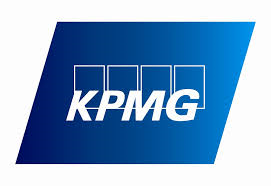6 Factors to consider when deciding between an MSc or a professional certification

Xfire is a graduate of one of the notable public universities in Nigeria, with working experience in the FMCG and petroleum industry. He currently works as an engineer in a multinational oil company in Nigeria. He is passionate about guiding people to achieve their dream careers, and he is known for his pragmatic approach towards career and life issues.
In the pursuit of a successful career for graduates out there, a lot of enquiries have been made as regards the best career options/route to pick. One of those recurring issue remains making a choice between furthering one’s education or delving towards acquiring professional certifications. There are a number of influencing factors and this will be discussed succinctly:
(1) Career goals – This is of course the most important. The decision to make a choice is much easier if one’s career goals/objectives is clear and direct from the start. For instance, a person wishing to be a investment lawyer, architect, lecturer, gynecologist, etc. will most likely go for further studies. On the other hand, a graduate hoping to become a chartered auditor, IT specialist, HR professional, software engineer, etc. may be favourably disposed to obtaining relevant certifications. However, career goals of most fresh graduates may sometimes be obscure and understandably so. Thus other factors may come to play.
(2) Changing careers? One may desire to switch careers for various reasons ranging from passion to adaptability/ survival strategy. This may be in line with our short or long term career objectives. Both certification and MSc may fit in here. For instance, an economist may decide to make drastic career switches to being an accountant or rope access technician or even a safety officer in the oil and gas industry by obtaining necessary certifications. In contrast, the same economist may choose to further his studies in petroleum economics to become an oil and gas economist. In the same manner, there are many professionals that have switched career lines to management, HR, IT, logistics management, quality assurance, etc by obtaining necessary industry certifications.
(3) Target Industry – In addition to one’s career goals, the industry of choice also plays a huge role in determining what lies next for a career oriented person. For instance, additional degrees in top universities will be more beneficial to a kickstart a successful engineering career in the manufacturing or oil industry. But for the construction industry, a COREN & NSE certification / membership seems to be of great recognition for construction engineers. In the building industry in Nigeria, a COREN certification is more valuable than an MSc in structural engineering. Also, professional courses seem to be of much value in the marine industry after the basic tertiary education. The examples are not exhaustive.
(4) Age – This is another determining factor. Truth remains that it is best to have a blend of both degrees and certifications if we have age on our side. There are some job opportunities that almost forecloses graduate beyond a certain age. One needs to consider the length of time it will take to acquire some certifications or degrees. The older job seeker (without requisite work experience), the tougher it gets to land certain dream jobs. In that case, it may advisable to acquire professional certifications to boost one’s chances in the saturated labour market. On the other end, It is a near- perfect guidance for young grads (21years and less) to gun for their Masters first because they still have age on their side.
(5) Level of experience – Experience often trumps additional degrees and certifications almost all the time. There are many professionals in the many industries / organizations who have only Bachelors degrees but have been able to reach the pinnacle of their careers due to hard work and performance. However, most of them stuck to the same organization for most of their career history. As one gathers more technical experience, the need to garner certifications / additional degrees may wither. With a rich working experience, it is often easier and clearer to decide whether to go for an additional degree or acquire certifications. It is always advisable for the experienced ones to acquire global certifications, attend professional courses and join international professional bodies to remain competitive in the industry.
(6) Relocating? – If you plan to relocate to another country (e.g. US or Canada), it is usually better to acquire your higher degree in the country of choice to make it easier for you to settle down and get a job there.
Other reasons are…
(7) Family influence – Of course, you cannot take away the influence of one’s parents and family members when it comes to making such choices. If you grew up in a well educated and enlightened family, there is a higher tendency that you will most likely for gain additional degrees from prestigious universities to preserve the family prestige. On the contrary, I have a friend who studied dramatic arts in one of Nigeria’s 2nd generation university. He is the first and only graduate in an extended family of 20+. For such a guy, the desire to further his studies is still quite low as he is still basking in the euphoria of being the first grad.
(8) Future political/corporate ambition (long term)- This has become a new dimension based on new trends in the country as a result of the high premium placed on certificates. Political ambition can be the desire to be a leader of a professional body, international organization or the desire to be a government head or appointee. One may aspire to be the director or head of an organization or corporation. For such honorable ambitions, one may consider getting further degrees like MBA, PhD, another other MSc programme to add to one’s clout and CV.
(9) Money – Who can ever take away the influence of money in enhancing employability? We all wish we had unlimited resources. We would acquire as many degrees and certifications we can. However, we have to make the wisest choices when we are faced with limited financial resources. Decisions may have to be made whether to further in Nigeria or go for an international
****
JARUSHUB NETWORKING EVENING – DECEMBER 5
ENROLL FOR JARUSHUB INTERNET & SOCIAL MEDIA OPPORTUNITIES MASTERCLASS
Attend JarusHub Employability and Career Advancement Class and get ahead in your career!
GRAB A COPY OF JARUSHUB’S GUIDE ON CAREERS IN NIGERIA: THE ROAD TO VICTORIA ISLAND
GOT AN OIL COMPANY OR ANY OTHER COMPANY INTERVIEW? ENROL FOR JARUSHUB INTERVIEW PREPARATION PLATFORM
DON’T FORGET TO CHECK OUT JARUSHUB CV WRITING SERVICE
Subscribe to JarusHub for more career tips
[subscribe2]
Established in March 2013, JarusHub is a Nigerian information hub with focus on career and management. It is rated Nigeria's most authoritative destination for online career resources. It parades an array of Nigerian professionals who share their career experiences with a view to bridging career information gap and mentoring a generation to success. JarusHub has revolutionised career information and experience sharing in Africa. Whether you're a student, a recent graduate or an established professional, or even an executive, you will always find something to learn on JarusHub. All enquiries to jarushub@gmail.com or 0808 540 4500. Facebook: www.facebook.com/jarushub; Twitter: @jarushub or @mcjarus.
Attend JarusHub’s 2024 Seplat Assessment Center Coaching
October 29, 2024
Let us have your say by leaving a comment belowCancel reply
Recommended For You
-
MEMO TO GRADUATES: JOBS ARE EARNED, NOT GIVEN
June 4, 2016 -
Cancer: The world awaits a cure (i)
June 27, 2013 -
COMPANY REVIEW: KPMG
July 9, 2015






